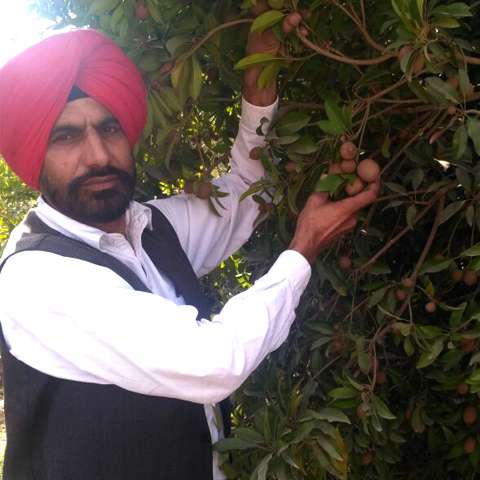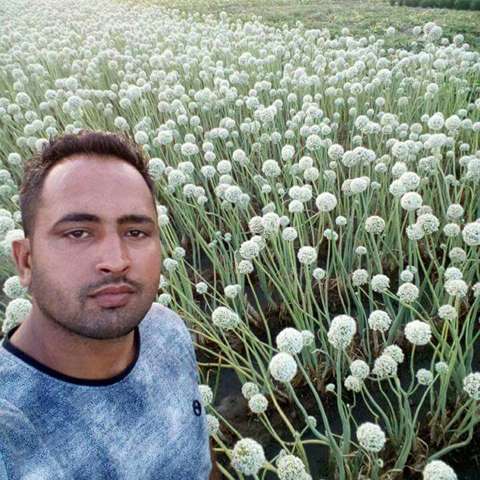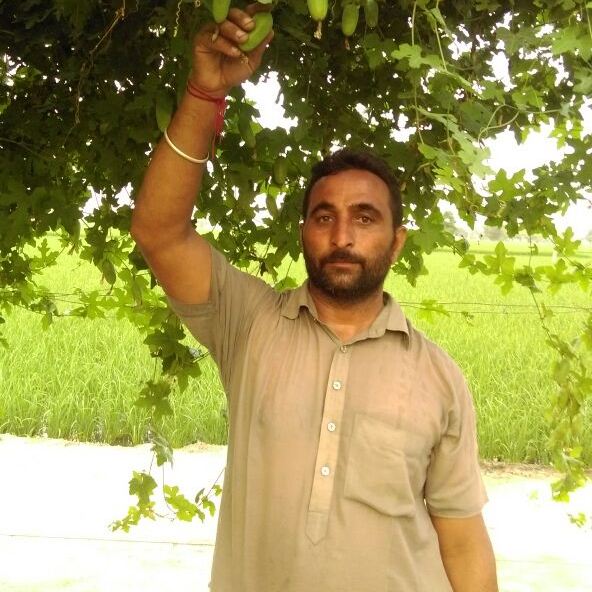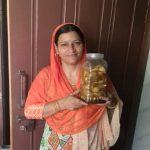STORY OF A FARMER BREAKING THE OLD CONSERVATIVE CUSTOMS OF FARMING TO ADOPT NATURAL PRACTICES
Today, farmers are the only person who can inspire other farmers towards organic practices of agriculture; and Balwinder Singh is one of those farmers who has adopted organic farming in the recent years to bring a positive change in the environment, by getting inspired by a fellow progressive farmer.
Well, turning towards organic is not that easy for those farmers who are used to conventional farming practices and high yield. But Balwinder Singh Sandhu overcame this hurdle with his strong determination and persistence hard work.
Earlier, in 1982 to 1983, he used to cultivate Cotton, Mustard and Guar crop, but from 1997 he started encountering pest attack of boll-worm on cotton crop, due to which he faced a major loss repeatedly. So, after that, he decided to start with paddy but still did not achieved the level of satisfaction with which he was farming earlier. His journey towards organic farming started in 2011 when he visited the organic vegetable farm of Manmohan Singh.
Visit to the organic farm, opened multiple insights of Balwinder Singh and then he decided to start vegetable farming; he initiated with chilli. To improve his earlier farming mistakes he even visited Gujarat to buy the good variety of cotton seeds and there he discovered information about the farming of seedless cucumber, strawberry, and melon. For continuously 3 years he keeps on reducing the use of pesticides on his land.
That year, Chilli crop yield was very good and it made him a profit of Rs 500000 just from 2 acres. Balwinder Singh also took advantage of his farm location. His farm location was on the road, so he put up a small shop at the roadside where he started selling vegetables. He also started processing chilli into chilli powder.
“When I started processing chilli powder then many people used to complain about it that your chilli powder is not red in color. Then I explained to them that chilli powder is never blood red in color. The powder which people generally purchase from the market has impurities and color adulteration.”
In 2013, Balwinder Singh started cultivating more veggies like Cucumber, Tomato, Pumpkin, and Capsicum.
“More crops needed more area, so to increase the farming area I took 40 acres land on lease from cousins and brothers. In the beginning, marketing was an issue for vegetables, but by the time this problem was also resolved.”
Currently, Balwinder Singh is cultivating vegetables on 8-9 acres, strawberry on 1 acre and paddy and wheat on the rest of the land. Moreover, to increase the productivity he has adopted all the modern farming implements, technology and environment-friendly practices like tractor, bed planter, rotavator, cultivator, leveller, seeder, drip irrigation, mulching, home-prepared organic compost and buttermilk spray in place of insecticides.
From the last four years, he is practicing complete organic methods on 2 acres of land and has reduced the use of pesticides and insecticides on rest of the land mass. Balwinder Singh’s hard work has impressed many people, even the DC of his area visited his farm; many articles have been published about his work in different print media and with the speed with which he is progressing, he will be recognized in the future also…
Message:
“Now farmers have to hold the weighing machine in their own hands to sell their produce to earn the profit. Because if they will continue their dependence on the middlemen or dealers for selling their harvest then they will not progress and will be cheated by the thugs again and again. Mediators take away all the profit that is farmer’s right.”










